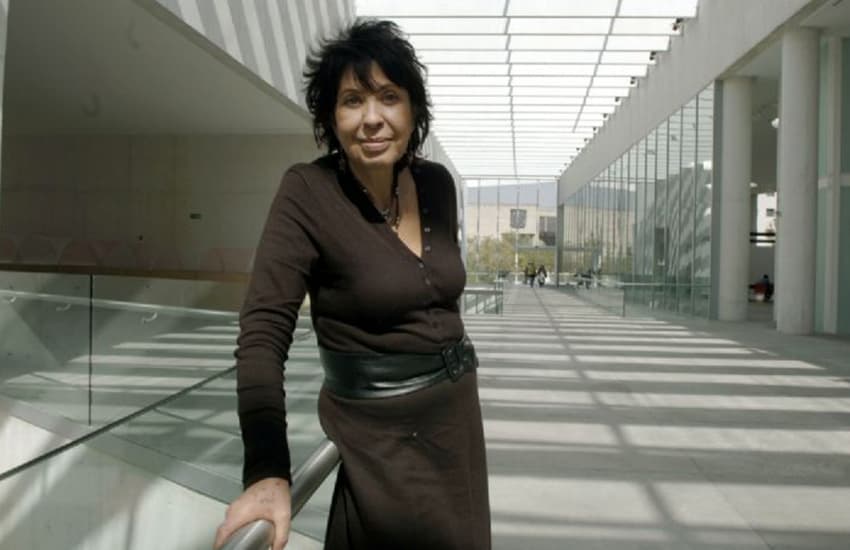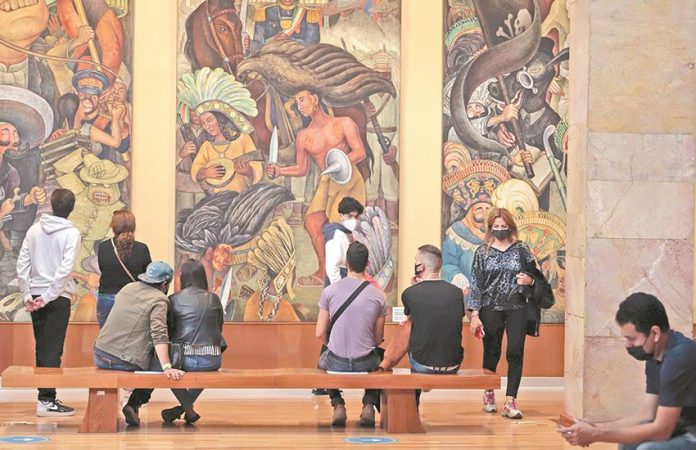Museums in Mexico face a crisis precipitated by the coronavirus pandemic, the preliminary results of a National Autonomous University (UNAM) study indicate, and the situation is only going to get worse, warns an academic.
Entitled Museums and Cultural Spaces in Pandemic Times, the study found that 40% of museums in Mexico haven’t reopened since closing early last year due to the pandemic. It also found that the resources available to museums have decreased by 32–45% in comparison with the period before the coronavirus began. Museums will also be forced to operate with up to 80% fewer staff.
UNAM academic Graciela de la Torre, an art historian and director of the University Museum of Contemporary Art, or MUAC, told the newspaper El Universal that the full results of the study — conducted in conjunction with the Museum Leadership Institute and the polling firm Buendía y Laredo, among others — will be published in approximately two months.
The study found that most museums intend to modify the way in which they operate in response to the pandemic, she said, explaining that they intend to offer open-air activities to reduce the risk of transmission of the coronavirus. De la Torre also said that 86% of museums are planning for their employees to continue working online where possible.
The institutions are being forced to adapt at a time when they have lower budgets, a reduced capacity to generate their own income and fewer members of staff, she said.

The economic impact of the pandemic on museums is “serious” but the possibility that pre-pandemic attendance levels won’t return and the lack of well-ventilated spaces in museums are equally concerning, de la Torre said.
“… [Museums’] self-generated income has been enormously reduced, so they’ll find themselves with a lack of resources,” she said. “The situation … is going to get worse,” the academic added.
In light of the difficult situation these institutions face, the non-governmental organization Interactividad Cultural y Desarrollo (Cultural Interactivity and Development), along with museum curators and directors, have proposed the creation of a funding scheme similar to those used to support the arts and cinema sectors.
Under an efimuseos scheme (efi comes from estímulos fiscales, or fiscal stimuli, while museos means museums), private citizens would be able to make donations to museums that are 100% tax-deductible.
However, the federal Culture Ministry has not expressed any willingness to consider the establishment of such a scheme.
Carlos Villaseñor, the head of Interactividad Cultural y Desarrollo, said that museums need a new funding source because their revenue has decreased due to the pandemic, public trusts that provided support have been abolished and federal government resources for culture are largely earmarked for other projects in the next two years.
Funds obtained via an efimuseos scheme — whose viability is dependent on a tax law change — could be used to finance exhibitions as well as museum maintenance and restoration projects and to acquire new additions to collections, among other uses, he said.
Donations received would amount to an “investment with a social benefit,” Villaseñor said.
A 500-million-peso (US $24.8 million) scheme is being proposed, which would be the total amount of tax deductions available to people who make donations to museums.
“It’s not a lot, [especially considering that] there are about 1,100 museums in the country, according to [national statistics agency] Inegi,” Villaseñor said.
De la Torre described efimuseos as a “very laudable” initiative but a “perfectible” one, although she didn’t specify how it could be improved.
“It could be an alternative for the administration of museums,” she said. “They don’t have [the] technological tools [they need], they … haven’t been upgraded. They’re extremely fragile — not just in the capital [Mexico City] but in the states as well.”
“The money they are capable of generating is right down because there are few visitors,” she also said. “They’re not capable of generating their own resources, nor do they have substantial income via the ticket office. The [funding] measures at hand are not sufficient. We’ll need to think of a patronage law. A tax reform, a legislative reform, is needed.”
“But there’s no [government] encouragement for organized civil-society participation [in finding a solution]. There is mistrust, not to mention repudiation.”
With reports from El Universal
